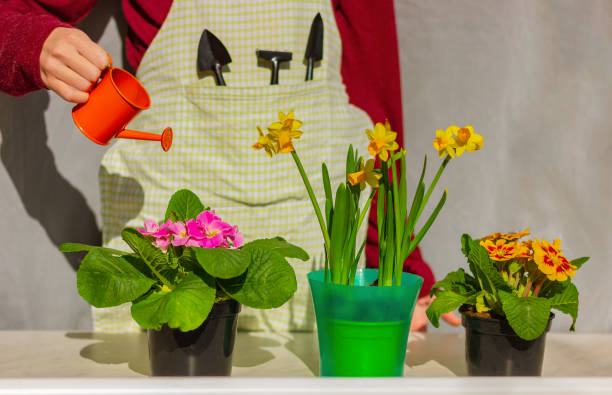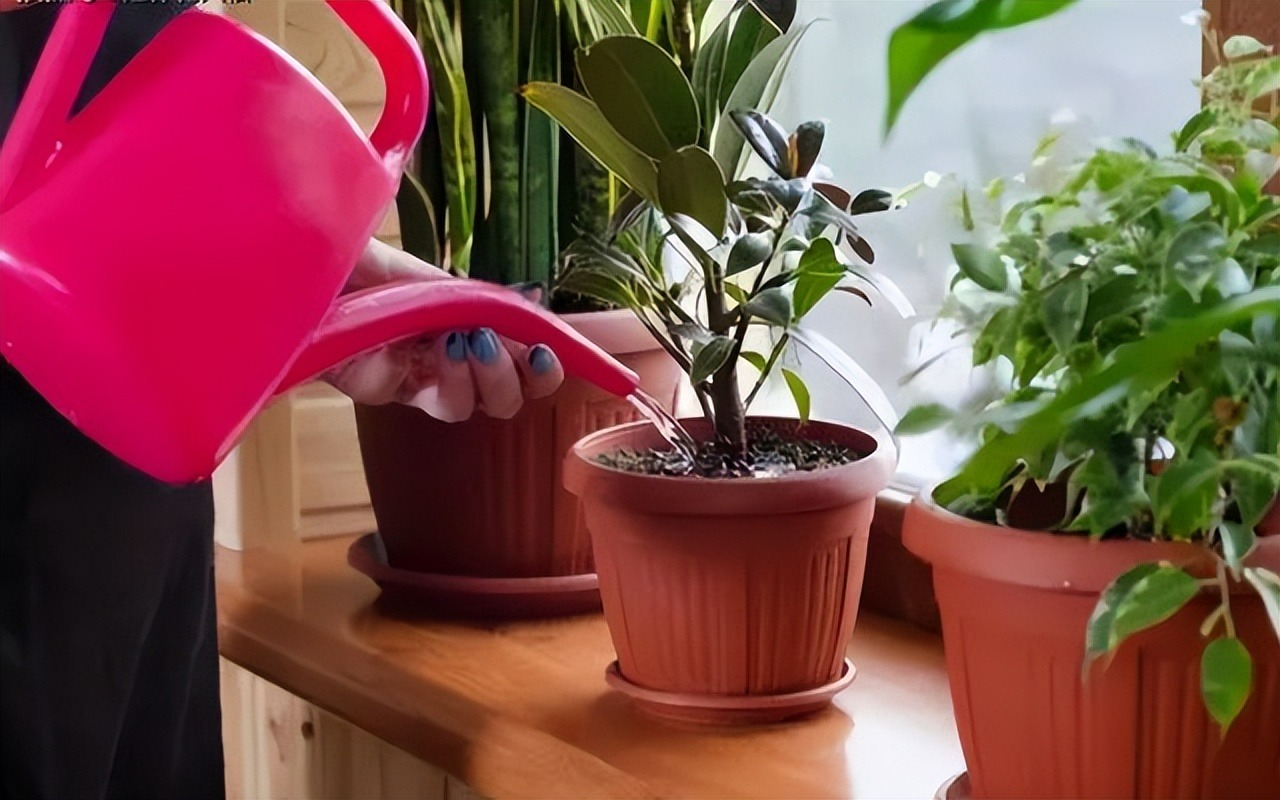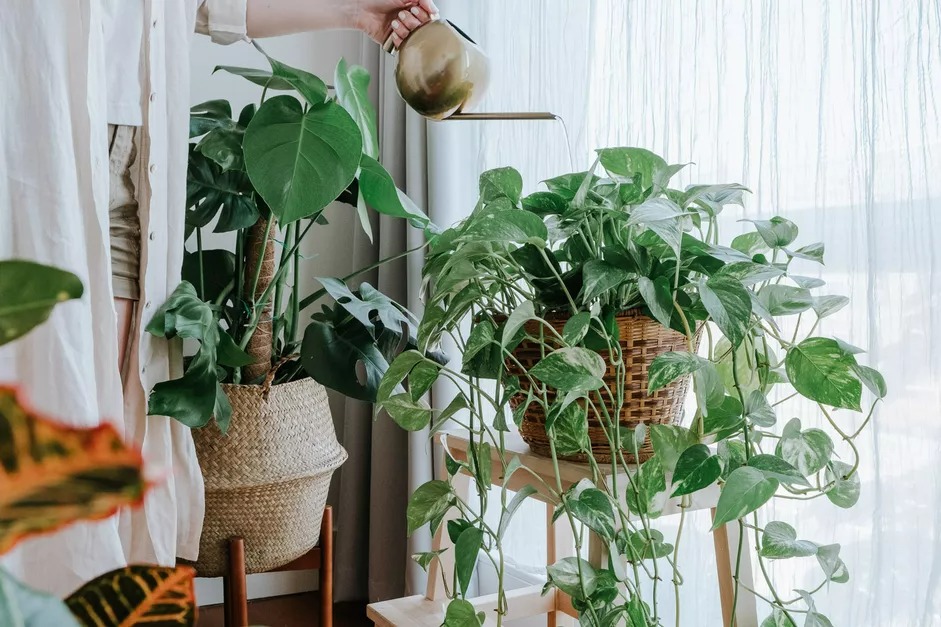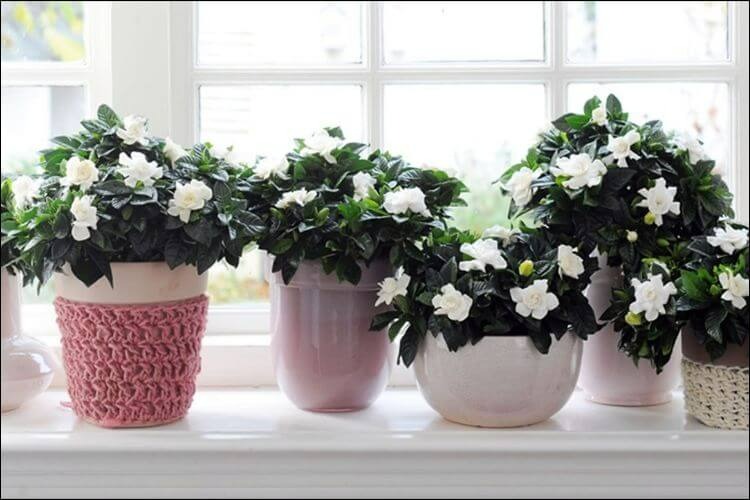Using acidic water is often used for gardening to make the soil loose and airy, the leaves vibrant, and the flowers bloom more.
As we know, most types of plants around us prefer to grow in slightly acidic environments. If the soil is as hard as rock, the plants will have difficulty growing vigorously.

In the city, we often use tap water to water plants, and this is absolutely not good.
Many people think that this is an insignificant issue and often overlook the issue of soil when planting plants. But it is often a small detail that determines the fate of the flowers and plants you grow.
Most plants used for gardening need nutritious, well-aerated, and slightly acidic soil. Otherwise, the plant roots are prone to rot, the plant roots do not develop well, and it is difficult for them to bloom.
In the city, we often use tap water to water plants, and this is absolutely not good. Many tap water sources are alkaline and contain a lot of chlorine.
If tap water is poured directly into the soil for planting plants, it will damage the plant roots and make the soil more compact. Therefore, those who can grow plants will not use tap water directly but let it sit overnight or at room temperature before use.
Therefore, let’s use tap water less for watering plants and use the following easy-to-find acidic waters instead.

This type of water can stimulate lush leaves and plant blooms.
1. Multipurpose fermented water for watering plants will be good nutrition
Nowadays, many people will make some organic fertilizers and nutrient-rich water to water plants. Because fermented fertilizers and self-made nutrient-rich water are slightly acidic, cost-saving, and very good for plants.
This type of water can stimulate lush leaves and flowers. For example, fermented rice water, fermented orange peel water, fermented grapefruit peel water, fermented soy milk water, fermented fish gut water, fermented milk water, etc.

The roots thrive in an acidic environment, so plants will appear lush, with vibrant leaves and blooming flowers.
2. Use vinegar to make the leaves vibrant
Because tap water is alkaline, when watering plants, you can occasionally add a little vinegar to adjust the acidity and alkalinity of the watering water, thereby adjusting the acidity and alkalinity of the soil.
This makes the soil soft, loose, and well-draining. The roots thrive in an acidic environment, so plants will appear lush, with vibrant leaves and blooming flowers.

During the plant’s growth period, you can also use a little aspirin water for watering plants.
3. Use aspirin water to enhance plant “immunity”
During the plant’s growth period, you can also use a little aspirin water for watering plants. Because aspirin’s active ingredient is salicylic acid, which has a powerful effect and can adjust the acidity and alkalinity of the soil.
This can prevent leaves from turning yellow and promote root development, prevent root decay and leaf rot. At the same time, it is also a rooting agent. The longer the plant is used, the more prosperous it will be.
In addition, when propagating flowers, if there is no root-promoting water, you can also use aspirin water as a substitute. Soak the cuttings in aspirin water before grafting to prevent quick root decay and increase the survival rate.

If you don’t have a garden or a porch, you can collect rainwater and store it for watering plants.
4. Use rainwater to water plants more
Flowers and plants should be grown outdoors on rainy days because rainwater is slightly acidic and rich in nitrogen, which is suitable for the growth of most green plants.
If you don’t have a garden or a porch, you can collect rainwater and store it for watering plants. Rainwater helps make the soil loose, fertile, and not dry and hard. All types of flowers can germinate and bloom.

Sulphate iron water needs to be used for special plants such as azaleas and gardenias.
5. Use iron sulphate solution for certain special plants
Sulphate iron water needs to be used for special plants such as azaleas and gardenias. Because these two types of plants are typically acidic, if iron sulphate is not enhanced, it will be difficult for the plants to bloom, and the leaves will turn yellow.
Therefore, during the growth period, you can use a little iron sulphate, dilute 1000 times, and pour it into the soil for planting plants. This way, the leaves will not turn yellow, and it will be easier for the plants to bloom.
According to Dan Viet
































